7 Healthy and Harmful Foods for Your Cat
If you are a feline lover and currently have one or more cats under your care, it’s essential that you know which foods they should and shouldn’t eat. Of course, you should always check with a veterinarian in case your pet needs a specific diet according to its own personal medical history.
5-Minute Crafts offers you a list of foods that could be either harmful or beneficial to your cat’s well-being.
Harmful foods for your cat
1. Fruits
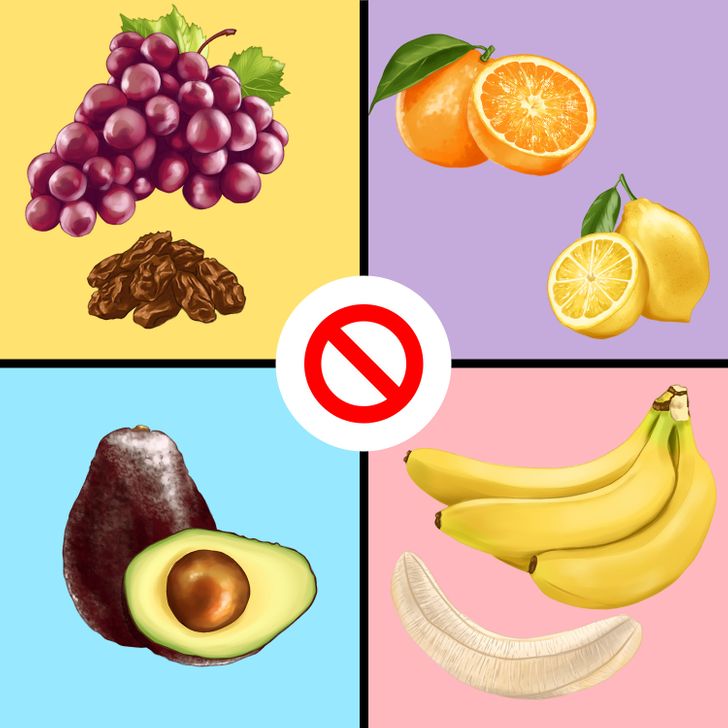
There are a few fruits that we should keep away from our furry friends because they could make them very sick, so watch out if your cat has eaten the following.
- Grapes and raisins: They can cause stomach problems. After ingesting them, they could suffer from vomiting, diarrhea, and even kidney failure in the worst cases.
- Oranges, lemons, tangerines, and citrus fruits in general: They cause stomach irritation, as well as vomiting, diarrhea, and in some cases, they can even affect a cat’s nervous system. Generally, cats tend to avoid citrus because of their strong taste and smell; however, it is preferable to keep them out of reach to make sure they’re not tempted to take a bite of these.
- Avocados: While great for humans, avocado is a high-fat food that contains a substance called persin that is toxic for cats and other animals as well. Cats, in any case, should never consume it since it will cause indigestion and damage to the pancreas.
- Bananas: This might be the trickiest one of all since felines do like its flavor and, if they see it, it’s very likely that they will want a bite of this fruit. Fortunately, it’s not highly toxic to them, but it could cause stomach upset and constipation, and its high sugar content can raise their blood glucose level.
2. Candy, dessert, or products containing xylitol
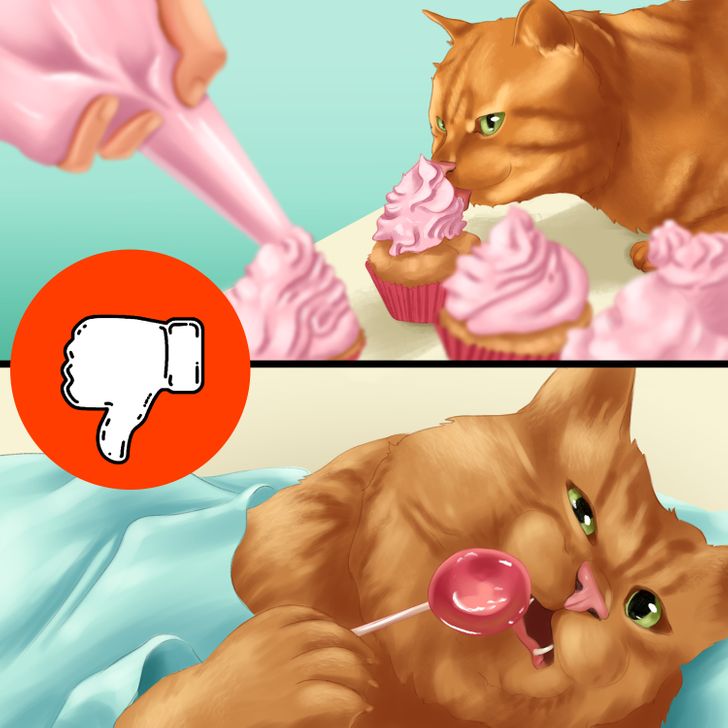
Xylitol is a sweetener that is highly toxic to kittens. It is present in products such as candy, chewing gum, sweet desserts, peanut butter, and toothpaste, among others. The sugar found in sweets isn’t exactly toxic to cats, but it’s still not healthy for them to ingest.
In case your pet consumes it, it could lower its blood sugar level, cause vomiting, convulsions, and liver failure.
Avoid leaving treats containing this substance within their reach as cats, due to their curious nature, could ingest them when you’re not watching them.
3. Coffee, tea, and chocolate
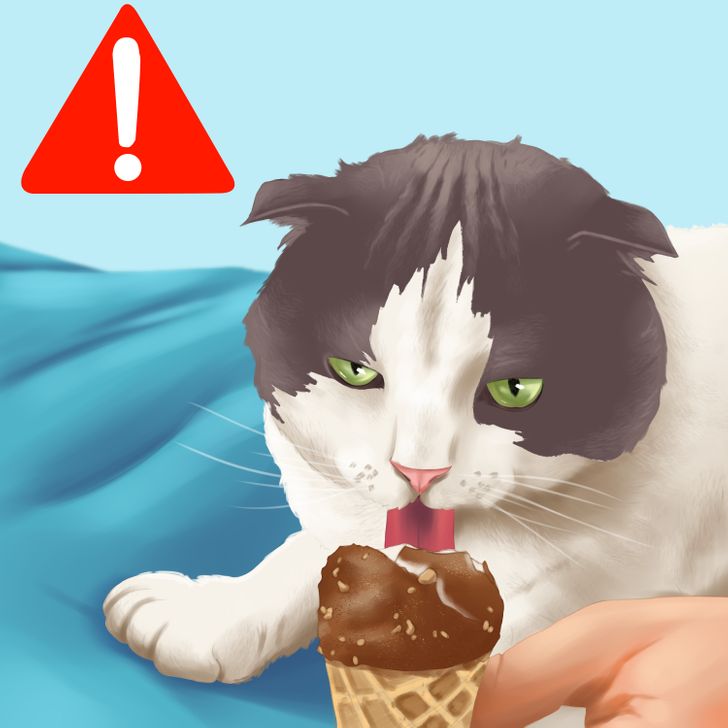
Coffee, tea, and chocolate are famous for containing varying amounts of caffeine and theobromine, respectively. For cats, these are toxic substances that are also present in energy drinks, flu medicine, and painkillers, but as you know, they can also affect human health if not taken with precaution. In addition, these products contain a stimulant alkaloid, called methylxanthine, which affects the pets’ nervous systems.
The ingestion of one or more of these foods puts the animal’s life at risk and action should be taken as soon as possible by seeing a veterinarian. Chocolate, for example, can cause vomiting, diarrhea, tachycardia, and convulsions.
4. Dairy
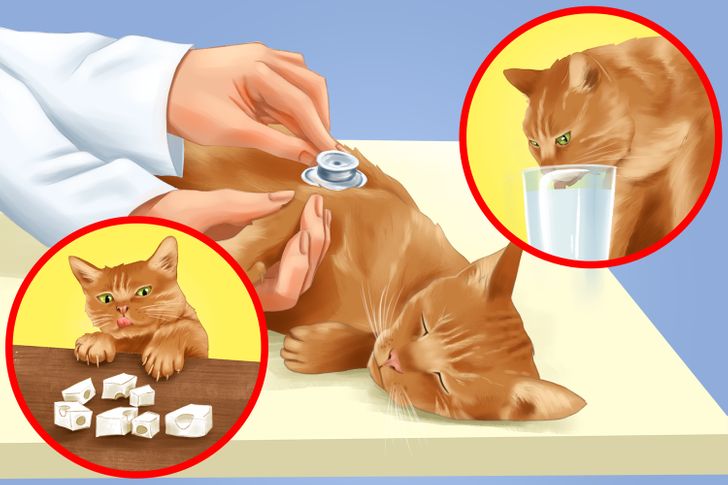
- We tend to think that cats love milk, but the truth is most cats are actually lactose intolerant.
- As they grow older, their bodies stop producing the enzyme needed to digest dairy. Because of this, consuming milk or large amounts of cheese, among other dairy products, can cause diarrhea and indigestion.
Healthy foods for your cat
1. Fruits
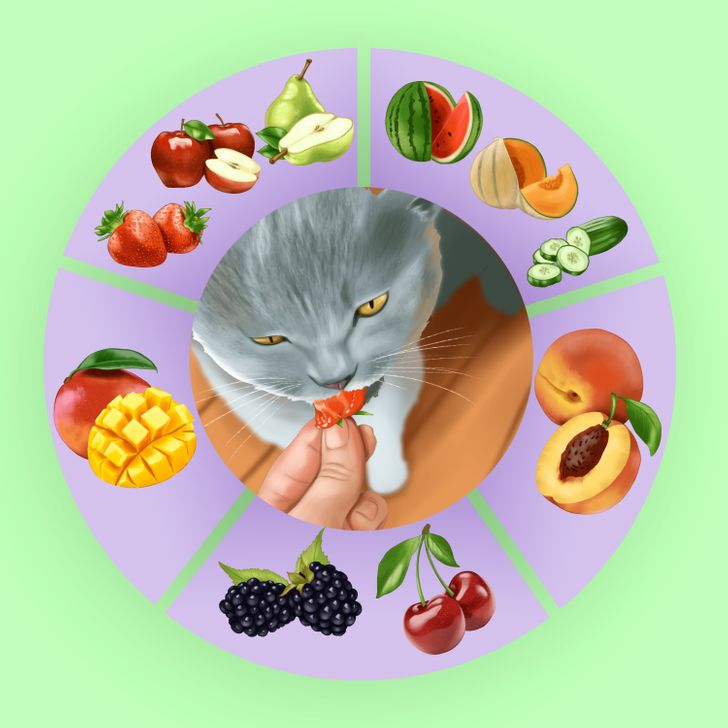
Even though kittens are not really able to detect the sweet taste of food, there are fruits that they like, and they can eat them as treats in moderate quantities and cut into small squares.
- Strawberries, pears, and apples (seedless): They are rich in vitamin C and fiber.
- Melon, watermelon, and cucumbers (without peels and seeds): They are refreshing and serve as natural moisturizers.
- Blackberries and blueberries: They provide cats with antioxidants and are rich in vitamins A, C, E, and K.
- Mangoes (pulp only): They contain fiber and vitamins C, B6, and A.
2. Vegetables
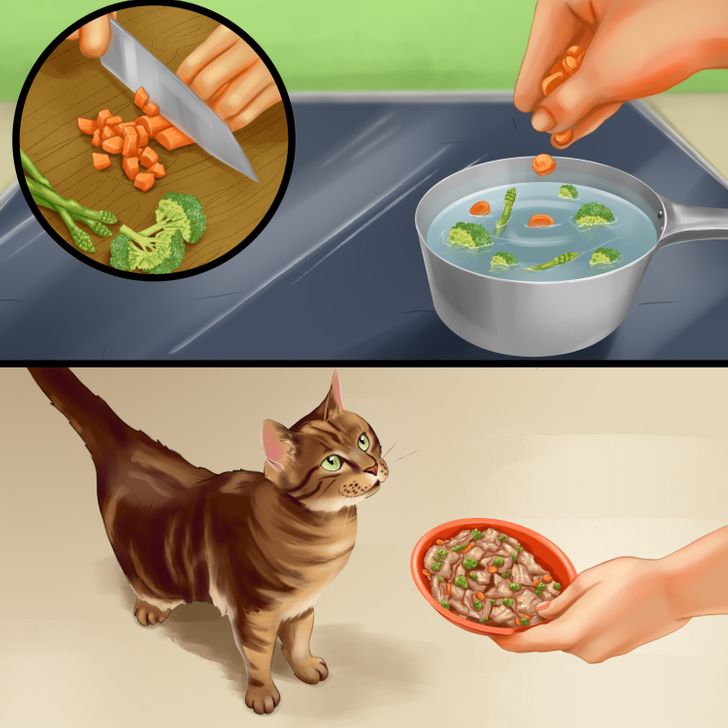
Cats are carnivores by nature; however, their diet can include certain cooked vegetables as long as you don’t add salt. Their consumption should be moderate and administered in very small pieces.
- Carrots and asparagus: They’re easy to digest and provide fiber and vitamins.
- Peas and green beans: They’re rich in fiber, vegetable protein, vitamins, and magnesium.
- Pumpkin, sweet potato, broccoli, and cauliflower: They’re easy to digest and ideal for mixing with meat, chicken liver, etc.
3. Whole grains
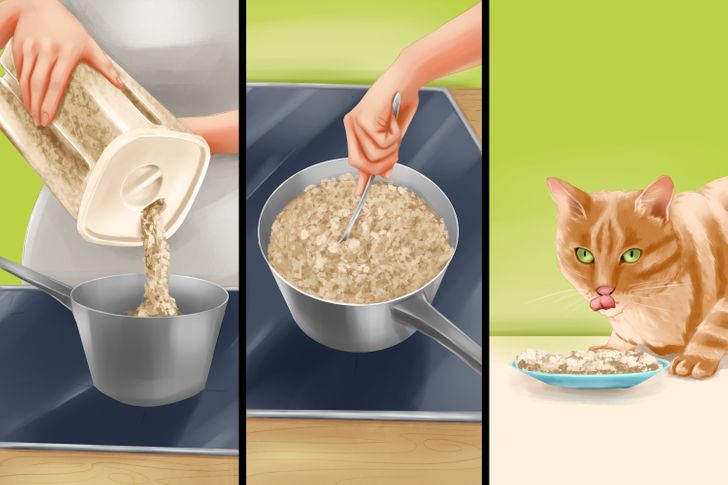
Whole grains can provide cats with energy, as well as carbohydrates, fiber, and antioxidants. Incorporate them in their favorite dishes in small portions, mashed. You can choose some of the following options.
- Cooked oats (gluten-free): They’re high in vegetable protein, vitamins, fiber, and vegetable fats.
- Brown rice, barley, and wheat: They are rich in carbohydrates, contain vitamin B, and provide magnesium and iron.
- Millet and couscous: They have B2 complex vitamins, folic acid, and vitamin E.